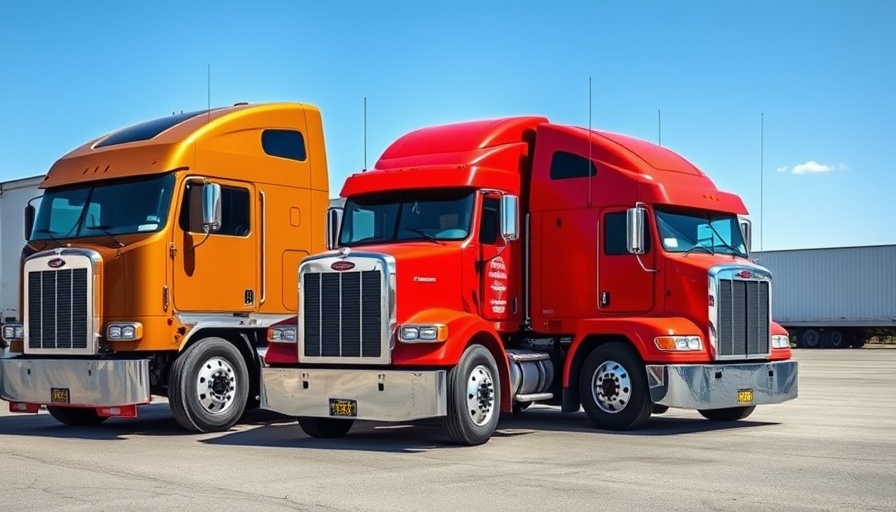
Understanding the English Proficiency Requirement for Texas Truckers
In the landscape of America's trucking industry, a key factor determining a driver's ability to cross state lines has emerged: English proficiency. In Texas, to obtain an interstate commercial driver’s license, it is indeed required that truckers can read and speak English sufficiently. This regulation is established within the Texas Transportation Code and aims to ensure safety on the roads, allowing drivers to understand traffic signs and signals essential for navigation.
Historical Context: Changes in Language Requirements
The history of language requirements for commercial drivers dates back to 1997, but a significant shift occurred under the Obama administration in 2016, which aimed to relax these standards. However, recent actions under the Trump administration reversed this trend. An executive order signed on April 28, 2025, reinstated the enforcement of English proficiency regulations, a move that reflects ongoing tensions in the discussion around driver qualifications and safety.
Implications of Language Proficiency on Drivers
From May 2025 onward, the implications of failing to meet these English proficiency requirements are significant. Drivers who cannot communicate effectively in English may be issued restricted commercial licenses, limiting their operation to intrastate travel, and subsequently reducing their job opportunities. This measure is part of a broader effort to prioritize road safety and effective communication among truck drivers and those they encounter.
Beyond the Regulations: The Broader Conversation on Driver Skills
Discussions surrounding language proficiency for truck drivers often extend beyond mere compliance with regulations. They reflect the ongoing debate around inclusivity and fairness in the workforce, particularly in industries facing labor shortages. While safety is paramount, understanding the diverse backgrounds of drivers and their contributions to the economy is also essential.
Moving Forward: A Call for Balanced Perspectives
As regulations evolve, it is crucial to keep the narrative balanced. The trucking industry plays a vital role in the U.S. economy, and while safety standards are non-negotiable, efforts to support drivers’ integration into the workforce should be equally prioritized. By fostering an inclusive environment, the industry can ensure both safety on the roads and the fulfillment of labor needs.
 Add Row
Add Row  Add
Add 




Write A Comment